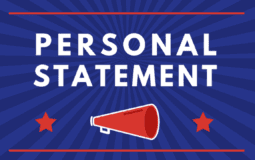You like to think you have a realistic sense of your strengths and weaknesses. You know the value you can bring to an organization or project. But you’re concerned that no one else is aware of the value you do and can bring. Luckily, a personal statement can help with that.
Think of your personal statement as your digital first impression, because very often it will be.
Here’s what it needs to make the impact you deserve.
1. A Short, Punchy Value Statement (Under 200 Characters)
Start with a short, punchy value statement that clocks in under 200 characters.
This is even shorter than your elevator pitch, which is roughly the first paragraph of your personal statement. Your value statement is only a sentence or two long.
It can also be a collection of phrases that describe you well. One place to find quality value statements is on Twitter, in users’ bios. Some are gibberish (or empty), but others are quite effective. Example: the Twitter bio for Steve Streit, an entrepreneur and philanthropist, clearly defines Streit’s past (Green Dot Bank) and present (Patti’s Way, SWS Venture Capital) value in one sentence.
In fact, your value statement can be your Twitter bio, if you’re so inclined.
2. Facts in Descending Order of Importance
People reading your personal statement today don’t care where you went to high school or what sport you played in college. Unless you’re applying for a coaching job at your former high school, maybe.
So lead with the most important information in the first paragraph. This may be your current role, your key credential, your most recent exit — whatever’s most germane to what you’re doing right now and relevant for your audience. (More on that in a moment.)
Save the less recent stuff and the “fun facts” for later in the statement if you include them at all.
3. Few (If Any) Superlatives — Let Your Accomplishments Do the Talking
Your personal statement isn’t quite an adjective-free zone, but it should be pretty close. It definitely shouldn’t contain eyeroll-inducing superlatives like “preeminent” or “prominent” or “premier.”
A great personal statement lets your accomplishments do the talking. Even if you feel like you have more to accomplish and more to prove, you’ve already done a lot in your life. Obscuring all that with flowery language could be interpreted as a sign of weakness.
4. Clear Connections Between Your Skills and Your Value
You’ve dispensed with the adjectives, but that still leaves the matter of tying it all together.
Your personal statement should clearly connect each accomplishment or role with an expression of value. You might note that you secured over $100 million in deal value for your most recent employer, or won a settlement worth $5 million for your last client, or — you get the idea. Again, your accomplishments speak, not the superlatives.
5. Relevant Credentials and Wins (Customize Your Statement for Your Audience)
Writing a great personal statement is not that different from writing a stellar resume. But there’s a bit more customization to be done. You want to have as many personal statements as you have audiences for them. And yes, each potential employer or investor counts as a different audience.
6. No Fluff (Not Even a Little Bit)
Finally, a writing tip: Excise any and all fluff from your personal statement.
Louise Fowen’s guide to removing filler content from your writing is a great place to start if you’re prone to drone or just aren’t that experienced a writer. Clear, confident, concise writing says a lot (of good things) about the writer.
You Get One Chance to Make a First Impression — Use It
With a lot of work and some luck, you can make up for a bad first impression. But you can’t turn back time and redo it from the beginning. It’s critical that you put your best foot forward.
In an increasingly “remote” world, “putting your best foot forward” usually happens online. Your next boss, business partner, star client — all are likelier than not to “meet” you for the first time on LinkedIn, or your personal website, or perhaps a jobs website.
For better or worse, they’ll judge you on the strength of your personal statement, along with any other clues to your identity and value and competence that accompany it. You don’t want to let them down.



